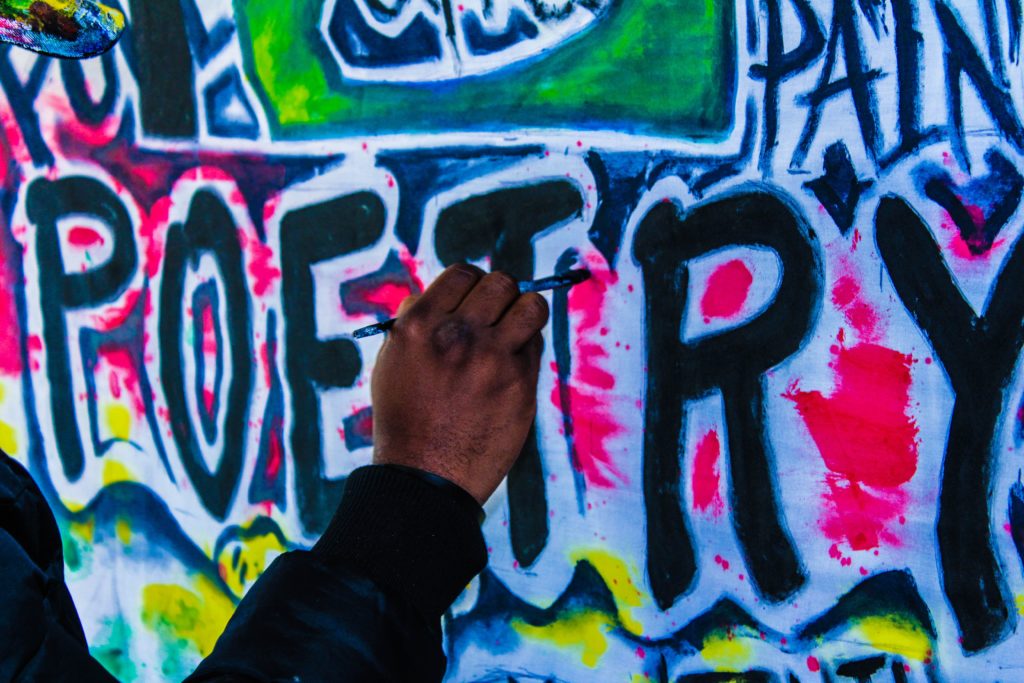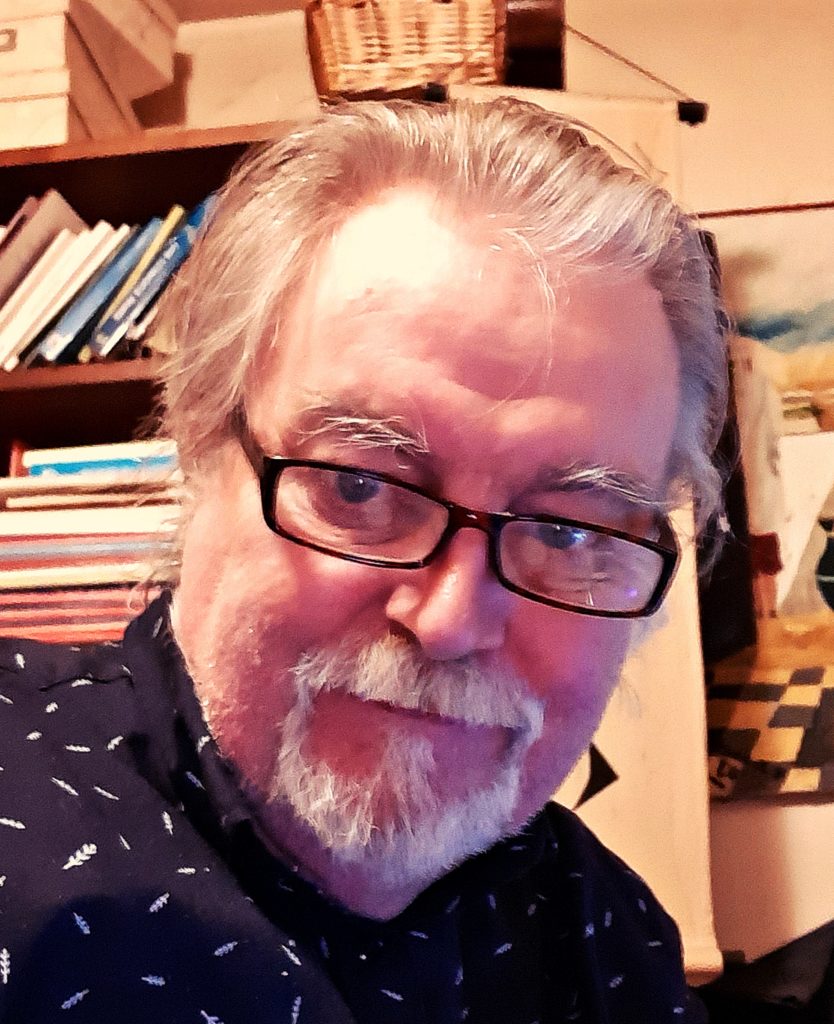Fred Johnston reflects on the joy and hardship in creating the ‘perfect’ poem.

FRED JOHNSTON
It begins in music. More exactly, it begins in the hope of music. A line appears, a phrase, the musicality – the lyrical substance of which – is attractive. Coupled to this will be an imaginative verbal turn. Very often there will be a period of gestation, sometimes quite lengthy, at others quite brief. The line itself may produce nothing to follow it but be reasonably decent in itself; it’s not tossed aside, but held in reserve against a more creative hour. Composing a poem, for me, is a process akin to brewing: various ingredients in their proper proportions are allowed to combine for a certain period of time, within which they are modified and allowed to act upon each other. The result, with a little luck, may be quite palatable.
I have often encouraged those interested in composing poetry to inspect folk-song. Those old ballads held to strict rhymes and points of rhythm and were crafted in such a way as to be easily stored in memory. To this end, whatever the theme, the verses themselves were turned ingeniously to suit the ‘ear’ of an audience: they spoke plainly, often wittily, in a language of daily use. The works were transmitted orally for the most part and often underwent changes as they went. In time their authors, though gifted, were, for the most part, unremembered. I am not suggesting that they write imitative faux folk-songs. But there are technical lessons in folk-song which have stood the test of time.
The theme of a poem sometimes appears rather later than the moulding together of the first lines. Not everyone will work like this. It is as if the language and its rhythm begins to assume a vigour independent of the act of writing and dictates its own destination. I have often begun a poem with one idea in mind, only to experience it forming another as it matures. The poem by its nature strives towards describing more than ordinary things of themselves, but ordinary things made extra-ordinary, made other than what they are, and freighted with a greater importance. In this way, the ordinary things described become sign-posts to the greater thing exposed in the poem.
Experimenting with form and style has always been important to me, leading to the production of styles and forms of my own. In one sense, this experimenting is merely an exercise; sometimes it can lead to different ways of addressing and elucidating the subject of the poem.
I don’t think I ever consider a poem to be quite finished in the way that other work can be, and I no longer scoff at poets whose work, even after publication, continues to mutate into new versions. A poem may initially assume a certain shape and relevance in time; but reading the same poem a decade later may on occasion require a re-telling, a re-working, if it is to remain vital. And it’s useful to remember that, after a number of years, one’s own grasp of language and craft will have altered too, so that the poem may benefit from what has been learned in the meantime. I read poetry often, and this reading of work other than my own churns up questions, doubts, challenges which need addressing in terms of style and approach. Quite conservative, by some standards, in my attitude to composing poetry, nonetheless it is impossible not to be aware that poetry has become less and less a permanent form; we live in an age of electronic transmission and composition where, arguably, craft has become subservient to immediacy, where the need to see one’s poem published seems to triumph a little too often over the desire to produce a poem which may endure.
But there remains a considerable satisfaction in wrapping up a poem which at least offers the achievement of having done one’s best. I have been very fortunate to have on a couple of occasions encountered individuals to whom a poem of mine has meant something, or reminded them of something or someone. This is probably the best praise a poem can earn. At a certain level, it is the justification for the poem, a confirmation of its worth.
Perhaps there is nothing else.
FRED JOHNSTON

Six-week online poetry course:
Poet and novelist Fred Johnston is offering again a six-session online course for those interested in writing prose or poetry. The series comprises six lessons with exercises and reading recommendations and feed-back on submitted work.
Those interested should contact fred.poet@yahoo.com. Suitable for beginners and novices who have published work. Course fee is €100.











